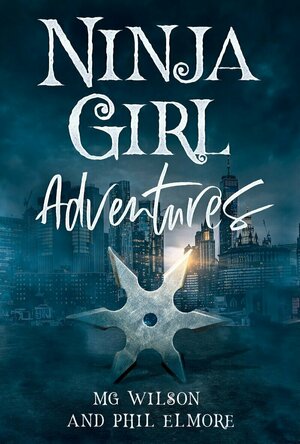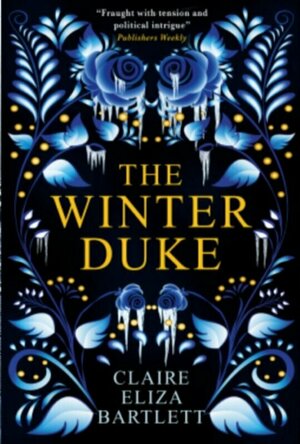Bob Mann (459 KP) rated Black Widow (2021) in Movies
Jul 8, 2021
Positives:
- Loving the heart in this Marvel! There's more sense of "family" than in F9! Johansson and Pugh, in particular, have a great on-screen relationship, and nice sisterly bickering goes on. There's a fabulous scene in a petrol (gas) station between the pair that really shows what class acting is available in this outing.
- David Harbour adds some fine comedy as the "Red Guardian", complete with action figure! Seeing him squeezing into his old uniform reminded me strongly of Mr Incredible! And the relationship with Rachel Weisz's Melina is also great fun.
- Completing the strong acting complement is Ray Winstone as villain Dreykov. It's a role he's played so many times before that he could probably do it in his sleep: but still great to watch. A shout-out too to the lovely Olga Kurylenko, looking decidedly unlovely here! (She isn't given very much to do as Taskmaster though.)
- There were some genuinely laugh-out-loud moments for me: both through witty dialogue and visual gags. A helicopter 'landing' was particularly snort-worthy!
- Lorne Balfe delivers another stonking soundtrack, full of Russian undertones. Also great is a twisted version of Nirvana's "Teen Spirit" over the opening titles.
Negatives:
- Now I KNOW you need to suspend belief during Marvel films, but the "Red Room" location (no spoilers, and no - not the "50 Shades" type) stretches that too far. It leads to an over-blown, free-falling finale that somewhat lessened the impact for me of the rather more realistic flow of the movie to that point.
- Tonally the movie is rather inconsistent. As an example, the start of the movie is played 'straight', as is the role of Alexei. But when he reappears later in the film - and it took me a long time to appreciate the jailbird character was in fact him - then he suddenly becomes the comic heart of the movie.
- I loved the way the film built the relationships between the characters. So this is NOT a negative from me. But I *suspect* some Marvel action fans may find the narrative portions of the movie too slow for their liking.
Summary Thoughts on "Black Widow": Black Widow has always struck me as an odd and slightly second-rate member of The Avengers. After all, she has no specific "superpowers", so how has she survived all of the physical abuse to date? So, given what we know happened to her in "Endgame", I questioned whether this was an origin story that would hold much interest with me. But the knack here is that it really isn't an "origin story" at all. It covers her early life, pre-titles, but then skips all the intermediate biopic stuff to drill into this specific adventure in her life. And the quality of the acting and the relationships that are built up delivered something that I greatly enjoyed.
Cate Shortland seems an odd choice to front a huge movie like this (she has a very short movie CV) but I think she's done a great job here. I'd put it in the top quartile of Marvel movies for me.
And BTW, as it's Marvel so as you might expect there is an end credits scene. You have to wait until the very end of the credits for it (so you can appreciate Lorne Balfe's score some more). But it is worth waiting for, re-introducing a character from one of the Phase 4 TV series.
(For the full graphical version, please check out One Mann's Movies on the web here - https://bob-the-movie-man.com/2021/07/07/black-widow-a-posers-guide-to-the-incredibles-3/. One Mann's Movies is also on Facebook and Tiktok (@onemannsmovies).)
Lottie disney bookworm (1056 KP) rated The Winter Duke in Books
Oct 13, 2020
Ekata is a middle child within the Avenko royal family: a family who are intent on murdering each other to get to the throne. However, Ekata has no interest in the throne at all: her interests lie in biology rather than brokering treaties and she wants nothing more than to leave Kylma Above and attend university.
However, at the age of thirteen, Ekata wakes to find herself the only member of her family who has not been cursed into a permanent sleep. Suddenly, she is the Grand Duke and is expected to prove herself worthy to rule Kylma Above: conquering the world of politics and magic in order to find a way to wake her family and avoid death herself.
The Winter Duke spans only six days in its storyline. Nonetheless, this does not diminish the journey that Bartlett takes her readers on: there are twists at every turn and almost everyone seems like a villain; neither Ekata nor the reader knows whom they can trust.
Although this is very much Ekata’s story, there are so many characters surrounding her that there is a danger some of these may seem undeveloped. Thankfully, I didn’t feel this way at all. Bartlett brings something different to each character she introduces: from Sigis’ immediate repulsiveness; Eirhan’s deadpan nature and Inkar’s flirty charms. All the characters have their part to play and, although keeping track of all the ministers could be difficult at times, this only added to the overwhelming suffocation that Ekata must be feeling.
Ekata herself is an amazing protagonist: at just thirteen she makes a number of impulsive decisions which end disastrously – so why do we, as a reader, not get frustrated with her? Again, I feel that this is due, in part, to the dizzying number of secondary characters. The reader witnesses the sheer number of commitments that fall onto the shoulders of one who never aspired to this role: we attend unwanted proposals; hear the accusations of murdering her own family; comprehend that she is used as a pawn by her Prime Minister and constantly see Ekata’s authority undermined due to her sex. It is impossible not to empathise with her desperate need to return to her normal life.
Sexism plays a large part in Ekata’s story, with Sigis immediately heralded as the solution to her problems due to his position as a strong man with an army. Inkar is also underestimated due to being female: before she then shatters these perceptions with her axes, her willingness to fight and her protective nature over Ekata.
However, The Winter Duke has to be commended for the gender fluidity within its pages. The brideshow is made of men and women, at least one minister is non-binary and the only romance within this novel is between two queer females. This was such a natural romance as well, slow-burning and cautious due to the politics involved but one that, when the walls of both women came down, could achieve the impossible.
The world building by Claire Eliza Bartlett in this novel is second to none. Kylma Above is impressive with its ice palaces and winter roses invading every corner. However, Kylma Below, the duchy below the ice is magical and sinister in equal measure. With fields of magic, sharks used in tribunals, and coral gardens, it wasn’t only Ekata who wanted to explore further.
Quite a few YA novels recently have included queer women smashing the patriarchy. This is the first one I have read where they smash the autocracy.
Ekata’s journey to find out what kind of ruler she will be is encapsulating and riveting. In a story where the betrayal just keeps coming, Ekata remains loyal to the end – despite the epilogue proving that this is never appreciated. The world of Kylma was immersive and the themes of politics, murder, sexism and violence are swept up by the breezy writing style to create a book that was impossible to put down.
Thank you to Netgalley for giving me the opportunity to read and review this wonderful novel.
Heather Cranmer (2721 KP) rated Yazzy's Amazing Yarn in Books
Aug 24, 2019 (Updated Aug 24, 2019)
Yazzy is a young girl who loves knitting just like her mom. When Yazzy and her mom walk by a park, Yazzy's mom reminisces about how the park was a lot better back when she was a kid. That night, Yazzy can't sleep. She's thinking about what her mom told her about the park. With the help of her friends, Yazzy decides to yarn bomb the park to bring back some of the cheer her mom experienced as a little girl.
I found the plot for Yazzy's Amazing Yarn to be interesting. My 4 year old son lost interest after a few pages though, but I don't think he's quite the demographic this book would appeal to. To me, I believe this book would appeal most to little girls aged 6 to 10 years of age. I also think the dialogue would be more understandable in this age group. Anyway, I enjoyed learning about what Yazzy and her friends would come up with to make the park more colorful and lively. When the girls leave the house for the park before it opens, I did wonder if they let Yazzy's mom know they were leaving the house. I guess that's just the mom in me though. I would have liked something written in the book that said a parent was notified of them leaving. Anyway, everything else was great, and yarn bombing was a fantastic idea to make a dreary old park come to life. I loved how the author added some history about yarn bombing at the end of the book. I had no idea yarn bombing was a thing until I read Yazzy's Amazing Yarn. From my take on it, it's when someone knits something for an item in their neighborhood such as for stop signs, traffic lights, parks, sidewalks, trees, etc.
The character of Yazzy was likable, and I think young girls can and will relate to her quite easily. She comes across as someone with a kind heart who likes to make others happy. Yazzy seems selfless and like a happy go lucky girl. I loved the diversity of all the characters I came across in Yazzy's Amazing Yarn, but it would have been even better if one of Yazzy's friends had been a boy to show that boy's like knitting as well and that it's not only for females. I was a bit disappointed that only girls were shown knitting. However, that didn't stop me from enjoying this great book.
The illustrations for Yazzy's Amazing Yarn were done superbly. Emily Calimlim, the illustrator, is such a talented artist, and it definitely showed throughout this book. I loved the different vibrant colors used throughout the pictures! My favorite scenes were the ones that took place in the park when it came to illustrations. I felt this was when the colors and illustrations jumped up at me from the page the most.
All in all, Yazzy's Amazing Yarn is such a feel good funtastic (not a typo) story that will warm everyone's heart. The story itself is beautifully written, and the illustrations are gorgeous! I would recommend Yazzy's Amazing Yarn by Cathey Graham Nickell to all ages due to the feel good factor although I do believe little girls ages 6 - 10 years would find it the most appealing. Yazzy's Amazing Yarn gets a 4 out of 5 stars from me!
--
(A special thank you to Lone Star Book Blog Tours for providing me with an eBook of Yazzy's Amazing Yarn by Cathey Graham Nickell in exchange for an honest and unbiased review.)
Super Self-Confidence Hypnosis Subliminal Affirmation HD Video App by Glenn Harrold
Lifestyle and Health & Fitness
App
This superb high quality subliminal hypnosis video by best selling hypnotherapist Glenn Harrold,...

EQ Player Plus
Music and Entertainment
App
The best equalizing technologies are applied for you who want to experience true sound. No more...

Baby Monitor 3G
Lifestyle and Health & Fitness
App
The First HD quality multiplatform Baby Monitor is here! BABY MONITOR 3G is a universal video and...

My Boo Virtual Pet & Mini Game
Games and Entertainment
App
Meet Boo, your very own virtual pet! Enjoy countless hours of fun in this addictive and entertaining...

Ninja Girl Adventures (Ninja Girl Adventures #1)
Melissa Wilson and Phil Elmore
Book
Sister Power at It’s Best Moira Mackenzie is just 14 years old. Her sister Mindy is 15, and...
Young Adult Thriller

Tracks4Africa Overland Navigator
Navigation and Travel
App
Tracks4Africa Overland Navigator is the iOS version of the Tracks4Africa GPS maps which has been...

Toca Life: Stable
Education and Entertainment
App
Welcome to a world of horses and adventure! Groom horses, care for them and show them! Engage in...



